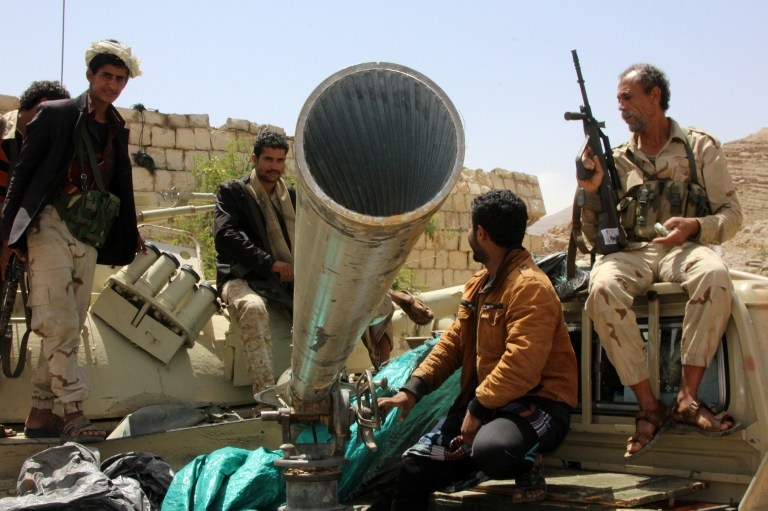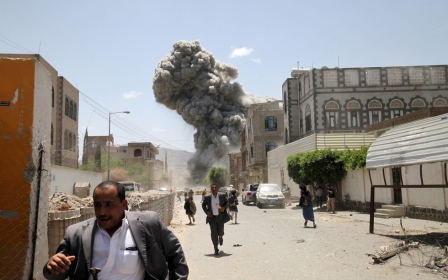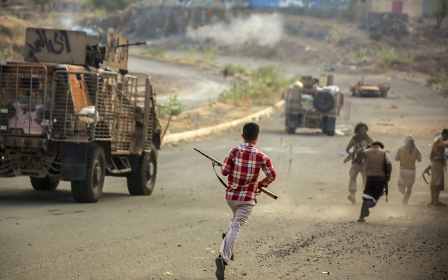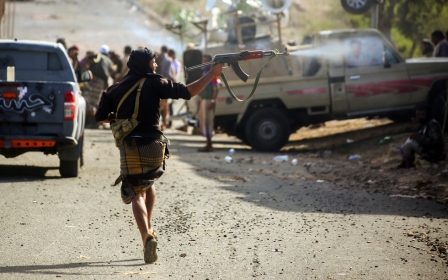Yemen peace talks delayed as Houthi delegation stays in Sanaa

The scheduled start of UN-brokered peace talks in Kuwait between Yemen's government and Houthi rebels was delayed on Monday after delegations representing the Houthis and the party of former president Ali Abdullah Saleh failed to attend, officials said.
"Due to developments over the last few hours, the start of the Yemeni-Yemeni peace negotiations scheduled to begin today... will be delayed," UN envoy Ismail Ould Cheikh Ahmed said in a statement, without specifying when they might take place.
"The next few hours are crucial," he said, calling on all parties to "take their responsibilities seriously and agree on comprehensive solutions".
A source close to the government delegation representing Yemeni President Abd Rabbuh Mansour Hadi in Kuwait City earlier said that the Houthi delegation had not left Sanaa and was "procrastinating".
But an anonymous source from the Saleh-aligned General People's Congress (GPC) told Middle East Eye that the delegation planned to attend eventually but was trying to put pressure on the government and the Saudi-led coalition supporting it amid complaints on both sides about violations of a ceasefire currently supposed to be in place.
The source told MEE that a main sticking point for the Houthis and the GPC is a stipulation that Saudi Arabia, one of the main belligerents in the conflict which has continued to carry out air strikes, will be in charge of monitoring ceasefire violations, alongside the UN.
However, a former Yemeni minister and member of the government delegation, Badr Basilma, accused the Houthis of "engaging in trickery to try and gain the advantage on the ground".
"The UN must put pressure on the Houthis to accept the international agreements that will solve the Yemeni crisis," Basilma told Sky News Arabia.
ِThe government delegation, which is led by Foreign Minister Abdulmalek al-Mikhlafi met with Sheikh on Monday after the delay was announced.
Hadi and his government are currently based in Aden in the south of Yemen since the Houthis overran the capital Sanaa in later 2014.
Middle East Eye propose une couverture et une analyse indépendantes et incomparables du Moyen-Orient, de l’Afrique du Nord et d’autres régions du monde. Pour en savoir plus sur la reprise de ce contenu et les frais qui s’appliquent, veuillez remplir ce formulaire [en anglais]. Pour en savoir plus sur MEE, cliquez ici [en anglais].




